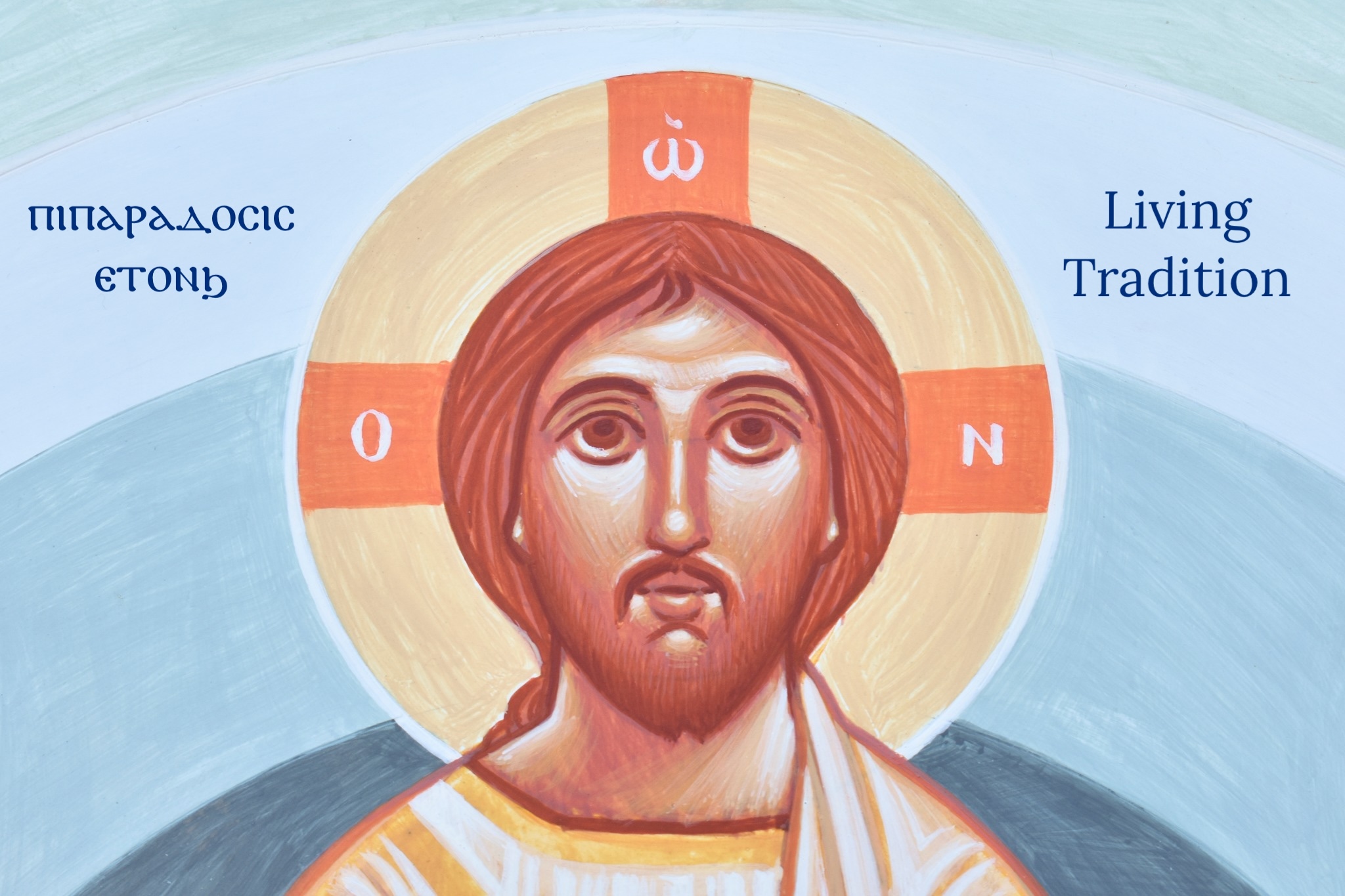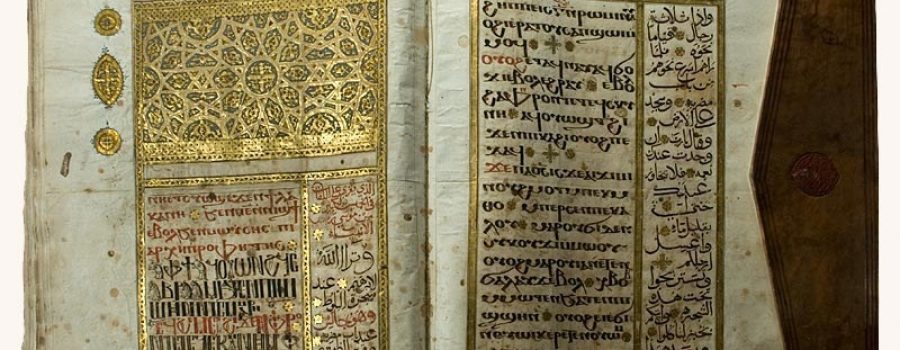In the Coptic Rite, specifically in the current Bohairic tradition, the time of the synaxis of the eucharistic liturgy (commonly called “Liturgy of the Word”) includes five pericopes (excerpts) from certain books/genres in the Scriptures: (1) Pauline Epistle (an excerpt from the 14 epistles of Paul including Hebrews), (2) Catholic Epistle (an excerpt from an epistle of either James, Peter, John, or Jude, (3) Acts of the Apostles (a selection from the book of Acts), (4) A Psalm (verses taken from the book of psalms, grouped typically into four stichoi/lines), and finally, (5) Gospel (a pericope from the gospels of Matthew, Mark, Luke, or John).
In all other authentic Coptic liturgical services (such as matrimony, baptism, funeral etc.) at least (1) Pauline, (4) Psalm, and (5) Gospel are present, with the exception of Matins of Holy Thursday which chooses to replace (1) Pauline, with (3) Acts, specifically to discuss Judas and his betrayal of Christ as it fits for that occasion. In fact, any service that does not include some form of these pericopes (such as the engagement prayer) is not an original liturgical service within our Church. Moving along…
Throughout the standard liturgical season, the ⲕⲁⲧⲁⲙⲉⲣⲟⲥ, or lectionary is split into two cycles: (a) Sundays, and (b) [Week]Days. The Sunday readings are typically ordered according to the Coptic months (focusing at times on the agricultural season, or specific connections such as gospels for the end times at the last two weeks of the Coptic year etc.). The readings for the Days are centered upon the saints of the day; if, for example, we commemorate a martyr, a set of readings is chosen focusing on martyrdom, or if we remember a patriarch, the readings focus on the good shepherd, and so on.
Aside from the standard ⲕⲁⲧⲁⲙⲉⲣⲟⲥ of the Sundays, and the Days, we also have three distinct lectionaries: (1) Great Lent, (2) Holy Week/Pascha, and (3) The Holy Fifty. Within the ⲕⲁⲧⲁⲙⲉⲣⲟⲥ of Lent and the Holy Fifty, a number of micro-systems exist, if you will; generally, each day can be interpreted on its own by focusing on the specific readings of that day (beginning with selections in vespers, OT prophecies(?) and matins readings, leading into and including the readings of the eucharistic liturgy; in addition, the readings can be interpreted through the lens of the week as a whole, beginning with the Monday of each week leading into the Sunday which is the finale and culmination of each week. Also, in line with the rest of the year, the readings of the Sundays—specifically the gospel pericopes—are also connected to the preceding and subsequent Sundays’ readings. Due to the sheer number of readings throughout these seasons, any number of interpretations and spiritual contemplations can be made. More books and pamphlets than I can count have been written concerning the Coptic lectionary, particularly, the Lenten and Holy Week selections.
Today, my focus is on the Sunday Gospel pericopes for Great Lent.
More often than not, we have been conditioned to think of the Sunday gospel pericopes by the event that occurs in that reading. As you can see in the images below, we usually list them as follows:
| Sunday before Lent | Our Father in Heaven |
| 1st Sunday | Treasures Sunday |
| 2nd Sunday | Temptation Sunday |
| 3rd Sunday | Prodigal Son |
| 4th Sunday | Samaritan Woman |
| 5th Sunday | Paralytic Man |
| 6th Sunday | Blind Man |
I came across a post that made me think a little extra…what if the lens we’ve been looking at these selections through is missing something? What if the readings are less about the events themselves, and more focused on the revelation of the LORD God, as is the entire purpose of the Reading of the Gospel in the Church. Lo and behold, what I found is that the Sunday Gospel Pericopes of Lent focus consistently on the revelation of God the Father through His Son Jesus Christ—a perfect preparation for the salvation Christ accomplishes through His Pascha, the celebration of which we look forward to all throughout lent.
Here’s what I found:
| Pre-Lent Sunday1 | Matthew 6:1–18 | Father who sees in secret rewards openly (v.4, 18) Father knows the things you have need of (v.8) Our Father (v.9) Father will also forgive you (v.14) |
| 1st Sunday | Matthew 6:19–33 | Father feeds the birds (v.26) Father clothes the grass (v.30) Father knows our needs (v.32) Frequent interchange between God and Father |
| 2nd Sunday | Matthew 4:1–11 | Preceded by voice of the Father, “This is My beloved Son” (3:17) “If You are Son of God…” (v.3, 6) “but by every word that proceeds from the mouth of God” (v.4) “You shall not tempt the LORD your God.” (v.7) “You shall worship the LORD your God, and Him only you shall serve.” (v.10) |
| 3rd Sunday | Luke 15:11–32 | “Parable of the Lost Son” is likely a misnomer, as it is more evidently a parable regarding the Father—”a certain man had two sons” (v.11) “I will arise and go to my father” (v.18) “Father, I have sinned…” (v.18, 21) “his father saw him and had compassion, and ran and fell on his neck and kissed him.” (v.20) “Son, you are always with me, and all that I have is yours…” (v.31) |
| 4th Sunday | John 4:1–42 | Samaritan Woman Encounter is a clearly revelatory text in which Christ reveals Himself as YHWH, and speaks of the Father and the Spirit. “true worshippers will worship the Father in Spirit and truth; for the Father is seeking such to worship Him” (v.23) “I know that Messiah is coming who is called Christ…I AM HE who speaks to you.” (ⲁⲛⲟⲕ ⲡⲉ ⲫⲏⲉⲧⲥⲁϫⲓ ⲛⲉⲙⲉ) “could this be the Christ?” (v.29) “My food is to do the will of Him who sent Me” (v.34) “we ourselves have heard Him and we know that this is indeed the Christ, the Savior of the world.” (v.42) |
| 5th Sunday | John 5:1–18 | “My Father has been working until now, and I have been working.” (v.17) “…He not only broke the Sabbath, but also said that God was His Father, making Himself equal with God.” (v.18) I wonder if vv.19–21 were also included in the pericope at some point in our history…just a thought |
| 6th Sunday | John 9:1–41 | “Neither this man nor his parents sinned, but that the works of God should be revealed in him.” (v.3) “If this man were not from God, He could do nothing” (v.33) “Do you believe in the Son of God?” (v.35) “You see Him, and it is He who speaks with you” (v.37) |
- Copts typically use the Arabic احد الرفاع. The Eastern Orthodox Church refer to the same day as “Forgiveness Sunday” or “Cheesefare Sunday”, while the Roman Catholic Church refers to it as the “Quinquagesima” among many other names. ↩︎
These seven consecutive readings are a beautiful and rich segue into the readings of Palm Sunday (the 7th Sunday of Lent) which announces the coming of the Blessed King of Israel, the Son of God, Son of David, whom the whole world has gone after (cf. John 12:19).
It seems to me, in this way, that the entirety of the Lenten ⲕⲁⲧⲁⲙⲉⲣⲟⲥ, in conjunction with that of Holy Week and the Holy Fifty, seeks to reveal to us the identity of the Father, in His Son Jesus Christ, through the work of the Holy Spirit in His Church. Furthermore, the moving encounters recorded in the gospels and selected by the Church for the Sundays of Lent are not only personal in nature, but are revelatory—a true encounter with God is one of love and healing through the revelation and confession of Jesus Christ as Son of God, restoring us to His Father, by the work of His Holy Spirit. We ought not only to focus on ourselves in these readings, but more so on who our God is, and who and what manner of God He reveals Himself to be.
A blessed Lent and acceptable fast to you all. Pray for me!






Leave a Reply
Your email is safe with us.